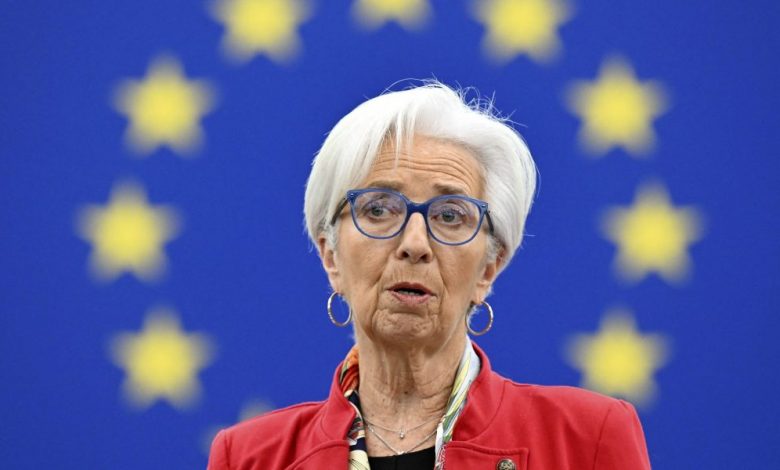ECB boss: Bank must do more to fight inflation monsters

Inflation has been far more persistent than central bank officials – or the public at large – would like, not just in the US but around the world. The latest example of this fact came last week when euro-zone inflation surprised economists, falling less than forecast despite falling energy prices.
Christine Lagarde, President of the European Central Bank (ECB), said over the weekend that the latest data mean the ECB needs to keep raising interest rates to ensure price stability, adding that a 50 basis point rate hike in March is “very likely ” may be .”
“We will do whatever is necessary to bring inflation back to 2%,” she told Spanish newspaper El Correo in a Sunday interview, citing the central bank’s inflation target. “I see our actions as more sustainable because inflation is a monster that we need to pat on the head and keep at 2%.”
Annual inflation in the euro zone fell to 8.5% in February from its October peak of 10.6%, Eurostat reported last week. However, economists had forecast a sharper drop to 8.2% and core inflation – which excludes volatile food and energy prices and is closely followed by central bankers – went the other way, jumping to 5.6% from 5.3% in January in February.
“Inflation wasn’t temporary, but disinflation might be,” said Ipek Ozkardeskaya, senior analyst at Swissquote Bank wealth last week, adding that the latest euro-zone inflation data had “confirmed” further rate hikes by the ECB.
After eight years of negative interest rates, the ECB has raised its key deposit rate from minus 0.5% to 2.5% since last summer to combat rising inflation. And economists expect the central bank to continue raising interest rates until they reach 4%, surpassing the 2001 peak of 3.75%.
Lagarde declined to say how high European interest rates will ultimately rise on Sunday, but said the central bank has “more work to do” and argued that core inflation will be “more stubborn in the near term”. Amid fears that the ECB’s rate hikes could potentially trigger a recession, Largarde also pledged to be “data dependent” and understand the economic costs of rising rates.
“We don’t want to destroy the economy; that’s not our goal,” she said. “Our goal is to tame inflation. And as a central bank, raising interest rates is our primary tool for achieving this. Rising interest rates dampen demand and reduce inflationary pressures.”
Lagarde added that for now the economy is “resilient” and the job market strong, which she believes further rate hikes are appropriate. The euro zone unemployment rate remained at 6.7% in January, just a hair’s breadth from the record low of 6.6% in October.
After repeated recession forecasts last year, most economists believe the bloc will avoid a recession this year due to a strong job market as well as lower-than-expected energy prices due to an unusually warm winter. And “Russia’s oil supply is still holding up,” according to Goldman Sachs, even amid Western export sanctions, meaning energy prices are likely to remain low.
Largarde said on Sunday that strong employment data and low energy prices have given her a more positive outlook for the future development of the European economy and she does not expect a recession in 2023
“We expect positive growth and increased activity later in the year,” she said, without giving specific inflation or GDP numbers.
Despite the better-than-expected aspects of the European economy, Largarde noted that persistent inflation means temporary support from governments may still be needed to help “vulnerable people” cope with the rising cost of living. And she said that the future of the European economy is up in the air because of the war in Ukraine.
“The uncertainty is great. A little over a year ago, we could never have imagined that there would be a war right on Europe’s doorstep. What will happen in the coming months is uncertain,” she said.
Learn how to navigate and build trust in your organization with The Trust Factor, a weekly newsletter exploring what leaders need to succeed. Login here.



